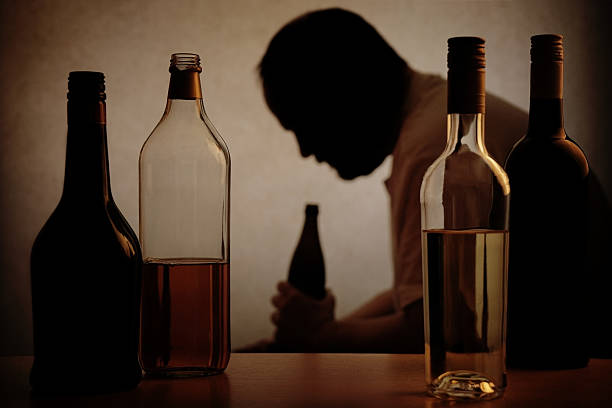A lot of people don’t think about how drinking alcohol can affect their mental health, but it’s a real issue. Cutting back on alcohol can have a positive impact on our mental health. It can help us to feel more relaxed, improve our sleep, and reduce stress and anxiety. It can also help us to think more clearly and make better decisions. If you’re struggling with your mental health, cutting back on alcohol may be a good place to start.
Why cutting back on alcohol is important for mental health
It’s no secret that alcohol consumption can lead to negative consequences. But did you know that cutting back on alcohol consumption is important for mental health?
Drinking too much alcohol can lead to feeling depressed and anxious. It can also make it difficult to concentrate and make decisions. This can impact work, school and personal relationships.
But making the decision to cut back on drinking can have positive benefits for mental health. For example, you may find yourself feeling more positive about things in general. You may also sleep better, have more energy and be able to think more clearly.
If you’re struggling with alcohol abuse, it’s important to seek help from a professional. They can help you develop a plan to cut back on drinking and support you through the process.
The effects of alcohol on the brain
Alcohol is a depressant that affects the central nervous system. When someone drinks alcohol, it slows down their brain activity. This can lead to slurred speech, clumsiness, and poor coordination. Alcohol also makes it difficult to think clearly and make good decisions. In high enough doses, it can even cause blackouts.
Drinking alcohol can have both short-term and long-term effects on the brain. In the short-term, it can impair brain function and cause memory problems. It can also make someone feel anxious or depressed. Long-term effects of alcohol include damage to the hippocampus (which is important for memory), shrinkage of the frontal lobe (which controls decision-making), and an increased risk for dementia.
So what does this all mean? Drinking alcohol can definitely have negative consequences on your brain health.
How alcohol affects our mood
It’s no secret that alcohol can affect our mood. For some of us, it might be the only way to forget our problems and feel good vibes. But sometimes, it can make us feel out of control. Here’s how alcohol affects our mood.
When we’re sober, we’re in control of our own emotions. We can choose to be happy or sad, angry or calm. But when we drink, alcohol takes over and our emotions are no longer under our control.
We might forget our problems for a while, but that’s only because alcohol is numbing our senses. It’s temporary relief from reality. And when the effects of alcohol wear off, we often feel worse than before because now we have to face our problems sober.
How to cut back on alcohol
For many of us, alcohol is a part of our social lives. We drink to relax, celebrate, and socialize. But for some people, drinking can become a problem. If you find that you’re drinking more than you want to or that it’s causing problems in your life, it may be time to cut back.
Here are some tips for cutting back on alcohol:
1. Set limits for yourself. Decide how much you’re going to drink before you go out, and stick to that limit. It can help to have a non-alcoholic beverage in between alcoholic drinks.
2. Practice mindful drinking. Pay attention to how your body feels as you drink and stop when you’ve had enough.
3. Avoid triggers.
Key takeaways
In conclusion, it is evident that cutting our intake of alcohol has a positive impact on our mental health. It reduces anxiety and depression, and can improve our sleep quality. Additionally, it helps us to think more clearly and be more productive. Therefore, if you are struggling with your mental health, reducing your alcohol intake may be a helpful step to take.
